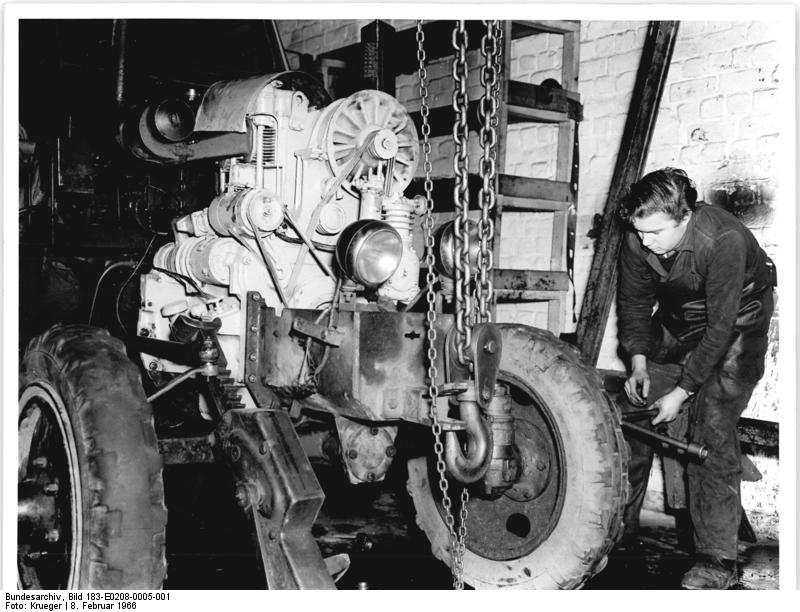|
Snecma Vulcain
Safran Aircraft Engines, previously Snecma (''Société nationale d'études et de construction de moteurs d'aviation'') or Snecma Moteurs, is a French aerospace engine manufacturer headquartered in Courcouronnes and a subsidiary of Safran. It designs, manufactures and maintains engines for commercial and military aircraft as well as rocket engines for launch vehicles and satellites. Some of its notable developments, alone or in partnership, include the Dassault Rafale's M88 engine, the Concorde's Olympus 593, the CFM56/ CFM-LEAP for single-aisle airliners, and the Ariane 5's Vulcain engine. The company employs around 15,700 people across 35 production sites, offices, and MRO facilities worldwide and files an average of nearly 500 patents each year. Safran Aircraft Engines also notably operates two joint ventures with GE Aviation: CFM International, the world’s leading supplier of commercial aircraft engines, and CFM Materials. Timeline * 1945: Snecma was form ... [...More Info...] [...Related Items...] OR: [Wikipedia] [Google] [Baidu] |
Subsidiary
A subsidiary, subsidiary company or daughter company is a company owned or controlled by another company, which is called the parent company or holding company. Two or more subsidiaries that either belong to the same parent company or having a same management being substantially controlled by same entity/group are called sister companies. The subsidiary can be a company (usually with limited liability) and may be a government- or state-owned enterprise. They are a common feature of modern business life, and most multinational corporations organize their operations in this way. Examples of holding companies are Berkshire Hathaway, Jefferies Financial Group, The Walt Disney Company, Warner Bros. Discovery, or Citigroup; as well as more focused companies such as IBM, Xerox, and Microsoft. These, and others, organize their businesses into national and functional subsidiaries, often with multiple levels of subsidiaries. Details Subsidiaries are separate, distinct legal entities f ... [...More Info...] [...Related Items...] OR: [Wikipedia] [Google] [Baidu] |
Concorde
The Aérospatiale/BAC Concorde () is a retired Franco-British supersonic airliner jointly developed and manufactured by Sud Aviation (later Aérospatiale) and the British Aircraft Corporation (BAC). Studies started in 1954, and France and the UK signed a treaty establishing the development project on 29 November 1962, as the programme cost was estimated at £70 million (£ in ). Construction of the six prototypes began in February 1965, and the first flight took off from Toulouse on 2 March 1969. The market was predicted for 350 aircraft, and the manufacturers received up to 100 option orders from many major airlines. On 9 October 1975, it received its French Certificate of Airworthiness, and from the UK CAA on 5 December. Concorde is a tailless aircraft design with a narrow fuselage permitting a 4-abreast seating for 92 to 128 passengers, an ogival delta wing and a droop nose for landing visibility. It is powered by four Rolls-Royce/Snecma Olympus 593 turbo ... [...More Info...] [...Related Items...] OR: [Wikipedia] [Google] [Baidu] |
SNECMA Régnier 4L
The SNECMA-Régnier 4L is a French four cylinder air-cooled inverted inline piston engine, introduced shortly after the end of World War II. Design and development Régnier Motor Company's introduction to aircraft engine production came after acquisition of licences to build the de Havilland Gipsy Major and Gipsy Six. Though they remained influenced by de Havilland practice their products began to diverge and eventually contained original designs. By the mid-1930s they had several four cylinder air-cooled inverted inline engines on offer, including the R.4L-02 displayed at the 1936 Paris Air Show. Though it shared a name with a post-war model, the two engines were very different: the 1936 engine produced from about 4 litres and with a dry weight near , the later reached from 6.3 litres at a weight of . During the Occupation of France and in the years shortly after World War II, Régnier designed and produced a set of three simplified four-cylinder inverted air-cooled inline ... [...More Info...] [...Related Items...] OR: [Wikipedia] [Google] [Baidu] |
Acronym
An acronym is a word or name formed from the initial components of a longer name or phrase. Acronyms are usually formed from the initial letters of words, as in ''NATO'' (''North Atlantic Treaty Organization''), but sometimes use syllables, as in ''Benelux'' (short for ''Belgium, the Netherlands, and Luxembourg''). They can also be a mixture, as in ''radar'' (''Radio Detection And Ranging''). Acronyms can be pronounced as words, like ''NASA'' and ''UNESCO''; as individual letters, like ''FBI'', ''TNT'', and ''ATM''; or as both letters and words, like '' JPEG'' (pronounced ') and ''IUPAC''. Some are not universally pronounced one way or the other and it depends on the speaker's preference or the context in which it is being used, such as '' SQL'' (either "sequel" or "ess-cue-el"). The broader sense of ''acronym''—the meaning of which includes terms pronounced as letters—is sometimes criticized, but it is the term's original meaning and is in common use. Dictionary and st ... [...More Info...] [...Related Items...] OR: [Wikipedia] [Google] [Baidu] |
Gnome & Rhône
A gnome is a mythological creature and diminutive spirit in Renaissance magic and alchemy, first introduced by Paracelsus in the 16th century and later adopted by more recent authors including those of modern fantasy literature. Its characteristics have been reinterpreted to suit the needs of various story tellers, but it is typically said to be a small humanoid that lives underground. Diminutive statues of gnomes introduced as lawn ornaments during the 19th century grew in popularity during the 20th century and came to be known as garden gnomes. History Origins The word comes from Renaissance Latin ''gnomus'', which first appears in ''A Book on Nymphs, Sylphs, Pygmies, and Salamanders, and on the Other Spirits'' by Paracelsus, published posthumously in Nysa in 1566 (and again in the Johannes Huser edition of 1589–1591 from an autograph by Paracelsus). The term may be an original invention of Paracelsus, possibly deriving the term from Latin ''gēnomos'' (itself representi ... [...More Info...] [...Related Items...] OR: [Wikipedia] [Google] [Baidu] |
CFM International
CFM International is a 50/50 Franco-American joint venture between GE Aviation and Safran Aircraft Engines (formerly known as Snecma). It was formed to build and support the CFM56 series of turbofan engines. The company is the world’s leading supplier of commercial aircraft engines, delivering to date more than 37,500 of its engines to more than 570 operators. As of 2019, it holds 39% of the world's commercial aircraft engine market share. The names of CFM International and the CFM56 product line are derived from the two parent companies' commercial engine designations: GE's CF6 and Snecma's M56 (its 56th project). In 2016 CFM delivered 1,665 CFM56 and 77 LEAP, and booked 2,677 orders : 876 CFM56 and 1,801 LEAP for US$36 billion at list price. The LEAP engine backlog exceeds 12,200 which is valued at more than US$170 billion at list price. In 2017, CFM delivered 1,900 engines including 459 LEAPs, of which it plans to deliver 1,200 in 2018, 1,800 in 2019 and more than 2,000 in ... [...More Info...] [...Related Items...] OR: [Wikipedia] [Google] [Baidu] |
GE Aviation
GE Aviation, a subsidiary of General Electric, is headquartered in Evendale, Ohio, outside Cincinnati. GE Aviation is among the top aircraft engine suppliers, and offers engines for the majority of commercial aircraft. GE Aviation is part of the General Electric conglomerate, which is one of the world's largest corporations. The division operated under the name of General Electric Aircraft Engines (GEAE) until September 2005. GE Aviation's main competitors in the engine market are Pratt & Whitney and Rolls-Royce. Not only does GE Aviation manufacture engines under its own umbrella, it also partners with other manufacturers. CFM International, the world’s leading supplier of aircraft engines and GE’s most successful partnership, is a 50/50 joint venture with the French company Safran Aircraft Engines. As of 2019, CFM International holds 39% of the world's commercial aircraft engine market share (while GE Aviation itself holds a further 16%). GE and Safran also operate anot ... [...More Info...] [...Related Items...] OR: [Wikipedia] [Google] [Baidu] |
Patent
A patent is a type of intellectual property that gives its owner the legal right to exclude others from making, using, or selling an invention for a limited period of time in exchange for publishing an enabling disclosure of the invention."A patent is not the grant of a right to make or use or sell. It does not, directly or indirectly, imply any such right. It grants only the right to exclude others. The supposition that a right to make is created by the patent grant is obviously inconsistent with the established distinctions between generic and specific patents, and with the well-known fact that a very considerable portion of the patents granted are in a field covered by a former relatively generic or basic patent, are tributary to such earlier patent, and cannot be practiced unless by license thereunder." – ''Herman v. Youngstown Car Mfg. Co.'', 191 F. 579, 584–85, 112 CCA 185 (6th Cir. 1911) In most countries, patent rights fall under private law and the patent holder mus ... [...More Info...] [...Related Items...] OR: [Wikipedia] [Google] [Baidu] |
Maintenance, Repair And Operations
The technical meaning of maintenance involves functional checks, servicing, repairing or replacing of necessary devices, equipment, machinery, building infrastructure, and supporting utilities in industrial, business, and residential installations. Over time, this has come to include multiple wordings that describe various cost-effective practices to keep equipment operational; these activities occur either before or after a failure. Definitions Maintenance functions can defined as maintenance, repair and overhaul (MRO), and MRO is also used for maintenance, repair and operations. Over time, the terminology of maintenance and MRO has begun to become standardized. The United States Department of Defense uses the following definitions:Federal Standard 1037C and from MIL-STD-188 and from the Department of Defense Dictionary of Military and Associated Terms * Any activity—such as tests, measurements, replacements, adjustments, and repairs—intended to retain or restore a fun ... [...More Info...] [...Related Items...] OR: [Wikipedia] [Google] [Baidu] |
Vulcain (rocket Engine)
Vulcain is a family of European first stage rocket engines for Ariane 5 and the future Ariane 6. Its development began in 1988 and the first flight was completed in 1996. The updated version of the engine, Vulcain 2, was first successfully flown in 2005. Both members of the family use liquid oxygen/liquid hydrogen cryogenic fuel. The new version under development for Ariane 6 will be called Vulcain 2.1. History The Vulcain rocket engine is named in French for Vulcan, the ancient Roman god of fire. Its development, carried out by a European partnership, began in 1988 with the Ariane 5 rocket program. It first flew in 1996 powering the ill-fated flight 501 without being the cause of the disaster, and had its first successful flight in 1997 (flight 502). In 2002 the upgraded Vulcain 2 with 20% more thrust first flew on flight 157, although a problem with the engine turned the flight into a failure. The cause was due to flight loads being much higher than expected, as the inqu ... [...More Info...] [...Related Items...] OR: [Wikipedia] [Google] [Baidu] |
Ariane 5
Ariane 5 is a European heavy-lift space launch vehicle developed and operated by Arianespace for the European Space Agency (ESA). It is launched from the Centre Spatial Guyanais (CSG) in French Guiana. It has been used to deliver payloads into geostationary transfer orbit (GTO) or low Earth orbit (LEO). The launch vehicle had a streak of 82 consecutive successful launches between 9 April 2003 and 12 December 2017. Since 2014, Ariane 6, a direct successor system, is in development. The system was designed as an expendable launch system by the ''Centre national d'études spatiales'' (CNES), the French government's space agency, in cooperation with various European partners. Despite not being a direct derivative of its predecessor launch vehicle program, it is classified as part of the Ariane rocket family. ArianeGroup is the prime contractor for the manufacturing of the vehicles, leading a multi-country consortium of other European contractors. Ariane 5 was originally intende ... [...More Info...] [...Related Items...] OR: [Wikipedia] [Google] [Baidu] |





